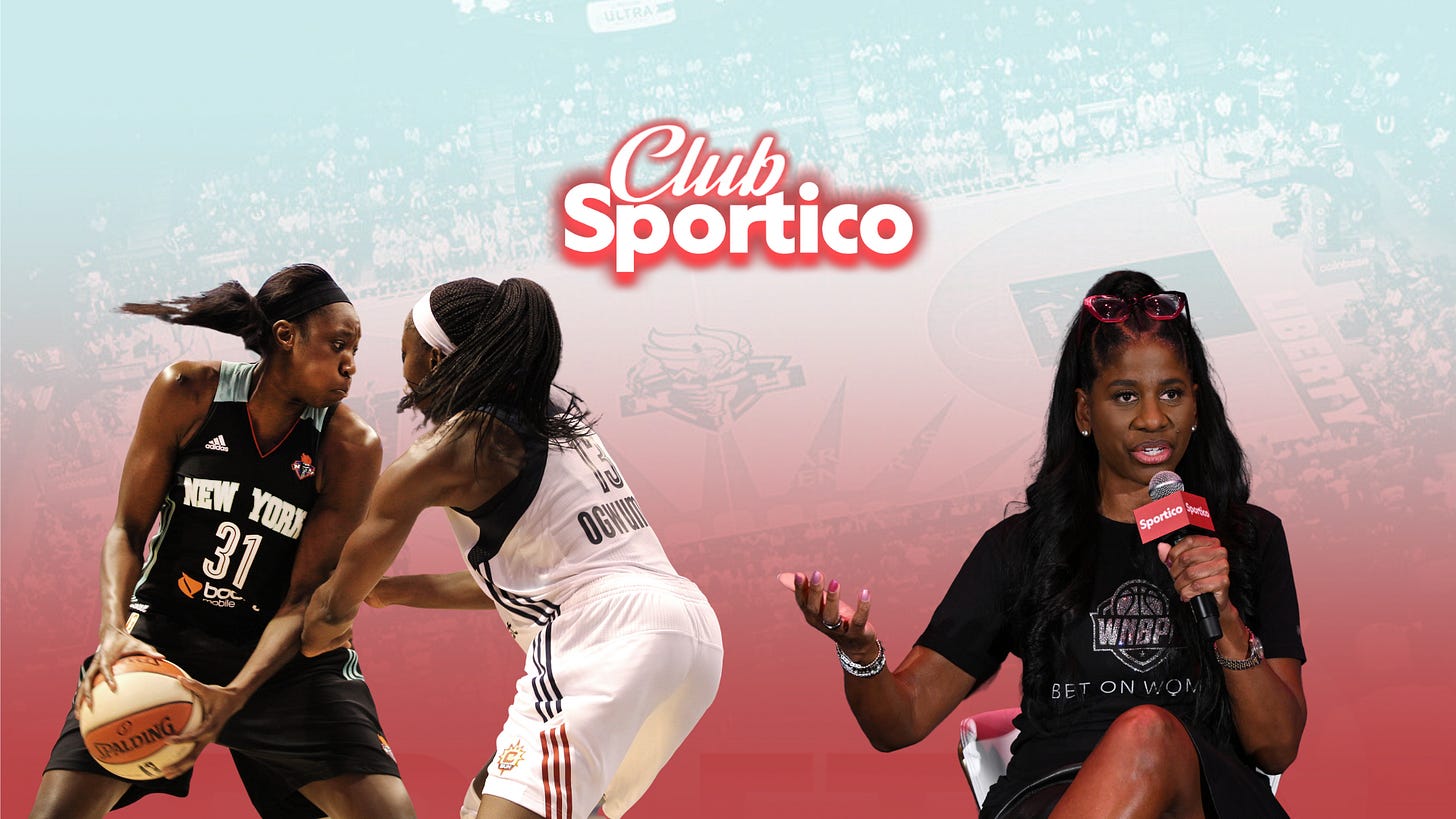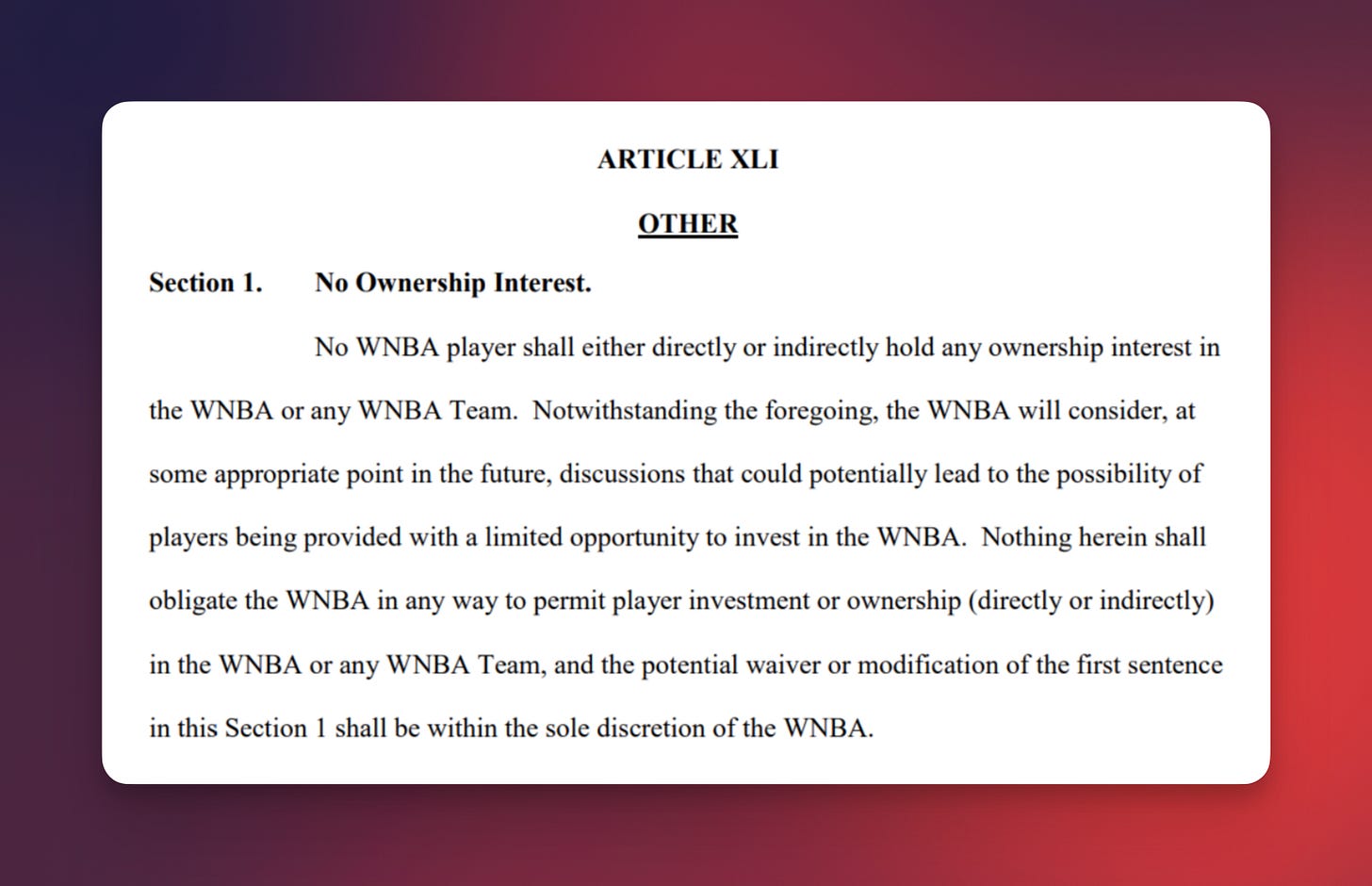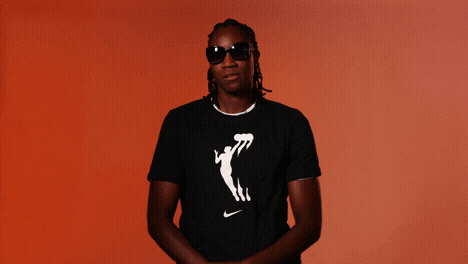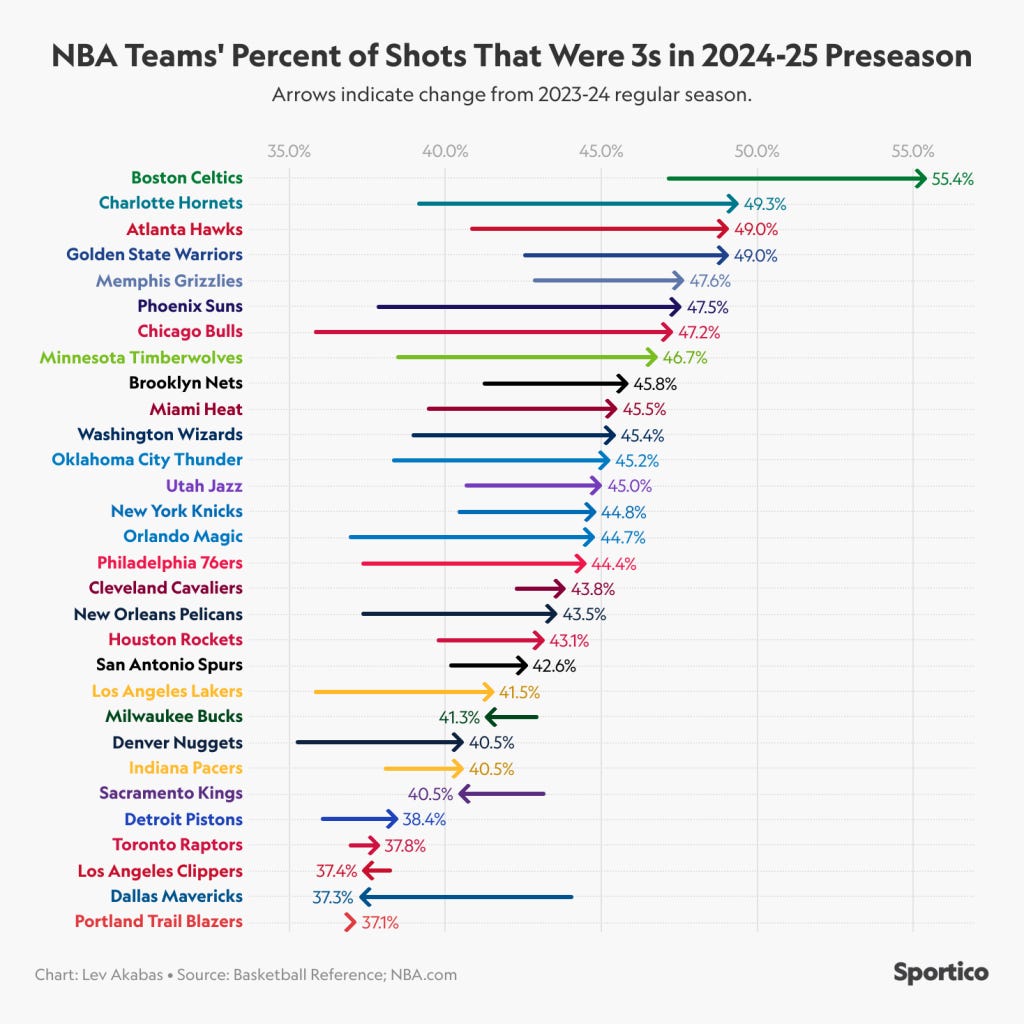From the garbage can to the owner's suite
Seven years before they won their first title, the New York Liberty were bad. Really bad. And it might lead to players investing in the teams themselves.
Welcome to Club Sportico! Eben leads off this week…
Terri Carmichael Jackson was less than a week into her job at the WNBA players association when her phone rang. It was Elena Delle Donne, a 6-foot-5 forward and one of the league’s biggest stars, and she was upset.
“After I get starstruck over the fact that Elena Delle Donne has just called me, I’m listening to her and I’m like, ‘I’m sorry Elena, can you repeat that?’” Jackson recalled at Sportico’s RISE event earlier this week. “And now she’s yelling, because she’s telling me that she just took an ice bath in a garbage can. And yeah… that’s not okay.”
It was a literal wake-up call for the WNBPA boss. A few years later, Jackson and the union negotiated a new collective bargaining agreement (CBA) that, among other things, created new standards for team facilities. The 350-page document, approved in January 2020, was a milestone for the league, and it contained two critical provisions that have helped set the stage for the current labor moment, with talks set to begin on a new accord to take effect by 2026.
The first was straightforward. The CBA included an opt-out clause that let the owners or the players end the deal two years early by providing written notice prior to Nov. 1, 2024. On Monday, following a season of historic commercial growth, the players exercised that option.
The second provision gets far less attention, and it involves a different WNBA star. During those 2018-2019 negotiations, former MVP Tina Charles was playing on a New York Liberty team that was floundering both on the court and off it. MSG, which owned the team at the time, was looking to sell, and in 2018 moved the Liberty to a 5,000-seat venue outside New York City as it solicited offers. The team finished the season 7-27. As Jackson tells it, Charles loved the Liberty and wanted to help. Can I help buy the franchise?, she’d wondered.
The answer was no. But it became a topic of discussion as they worked towards a labor contract, and while Article XLI, Section 1 of the CBA explicitly says players can’t own equity, it also includes a notable second sentence. “The WNBA will consider, at some appropriate point in the future, discussions that could potentially lead to the possibility of players being provided with a limited opportunity to invest in the WNBA.”
That line, which Jackson calls the “Tina Charles Provision” will likely be a critical point of focus for players in the next year of negotiations. Athletes in every major U.S. league look at franchise appreciation and dream of a future where they can share directly in that upside. Few unions, however, have had the juice to make it even a conversation.
NBA players, for their part, cracked this door ajar last year, gaining the potential to invest in funds that invest in NBA teams. The difference for WNBA players is that while NBA teams are worth an average of $4 billion, WNBA teams are worth an average of $96 million. They’d be getting in closer to the ground floor, and at significantly lower price points.
This isn’t to say that WNBA players will get this option. Or even that it’s likely. NBA and WNBA owners have been carrying losses related to the women’s game for decades, the equity structure of the league is already convoluted, and the W’s business isn’t quite as strong as many new fans might be inclined to believe. That said, I’ve written here in the past about how labor movements are different in women’s sports. It wouldn’t surprise me to see the WNBA players secure something way more advantageous than their male counterparts.
On stage at the RISE event, Jackson was asked how that equity option might work. “Well, yeah, I’m not going to tell you exactly how that works,” she said with a smile. “But I will say that everything is on the table.”
tl;dr:
Want free access to the entire Club Sportico experience, including exclusive trivia contests and Monday missives? Start by referring friends!
Now turning it over to Jacob for six flavorful sports business takes on Celtics history, Cowboy justice, and the sandwich taking over the NFL (???), plus more thoughts exclusively for paying Club Sportico members.
Story of the Week 🏀: Only the Celtics averaged at least 15 made three-pointers per game last season. Through two nights of the current campaign, eight teams are above that mark, while Boston pushed things to another level, tying the NBA record with 29 three-pointers (they did so with nearly nine minutes left in a blowout!). Lev Akabas broke down how and why basketball’s latest revolution is far from over.
Story of the Week (Non-Sportico Division) 🤠: Are facility tours solely to blame for the Dallas Cowboy’s lack of Super Bowl appearances since 1995/96? Obviously not. And yet… Kalyn Kahler’s great story here highlights what makes the Cowboys (and Jerry Jones) different from their NFL peers, and how players say the fan-friendly business practice interferes with their main task at hand.
What Made Me Laugh 🤡: Speaking of interfering with the task at hand, did you see that Cowboys kicker Brandon Aubrey missed practice this week for jury duty? Supposedly the team tried to get him off the case, but Aubrey insisted. I love that for him—but am definitely worried about how fans might react if he happens to miss a kick against the 49ers on Sunday.
What Caught My Eye 👀: Quick, how much do you think it would cost a family of four to buy the cheapest World Series tickets available? …
….
Keep reading with a 7-day free trial
Subscribe to Club Sportico to keep reading this post and get 7 days of free access to the full post archives.








